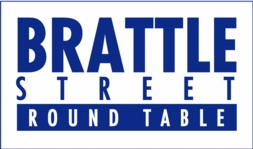

Government Works
Policy Analyst's ToolBox
Consultation ToolBox
Communications ToolBox
Registration and Documents
Special Pricing
Story of the Red Triangle
Ideas for a Leg Programme
Facilitation 101
Ten Ideas for a Successful Legislative Programme
Avoiding pitfalls that can delay a legislative initiative
- Manage your project Identify the time and resources you need to do it right. Find where you can get the resources. Build a diverse team that can handle all the different facets, and one that accommodates the strengths of your whole department. Get to know people and processes and where you fit in. Identify what can go wrong and build contingency plans.
- Address situations and set clear objectives Before you start writing legislative proposals, identify problems which might need a solution; look at what is causing the problems; set clear objectives; and come up with solutions which address the factors causing the problems.
- Strength in numbers When designing alternative solutions to problems, try to come up with at least three workable clusters of solutions. The choices of instruments must go beyond legislation, and even regulation, to look at the role that other elements can play (such as communications, training, and voluntary standards).
- Consult early and consult often As long as you take into account what people have to say, it's difficult to over-consult your stakeholders. Ideally you should have consultations tailored for each step of the legislative project. Manage stakeholders expectations regarding what can be delivered and how long it will take.
- Stakeholder bites back The stakeholder that you ignore during your consultations, to the point of sweeping his or her concerns under the rug, could be the stakeholder that uses the same arguments to persuade a parliamentary committee to change "your " bill. You must deal with all stakeholder concerns before Cabinet considers the proposed legislation. You need to anticipate the impact that any and all stakeholders can have on parliamentarians.
- Identify departmental strengths There will be many parts of your department that you will have to depend on at various stages in the development of the legislation. Different departments have different strengths and weaknesses. Identify early in the process what limitations and assets there are in terms of knowledge, biases, experience, and resources, for each of parliamentary affairs, cabinet affairs, communications, and the minister's office.
- Location location location While the value of a house depends on its location, the value of legislation depends on the House. And the Senate. No bill, once it leaves drafting and Cabinet approval is ever "your bill" or a "done deal", because the convention is that Parliament exists to control the power of government. Do not ignore Parliament, especially the committee processes. You cannot manage the House or Senate, but you can feed them.
- Know what you want Beyond general policies, have a clear idea of what you want the legislation to look like. Explore legislative alternatives, then prepare general drafting instructions for the MC, and specific ones for DOJ. See the latter as a point of departure, not as a finished product.
- Get your feet wet The legislative project will be handed off, to some degree, from institution to institution. Get to know the different institutions before handoff, so you can anticipate what will follow. Learn how drafting at DOJ will work before the cabinet submission and attend parliamentary sessions, both in the chamber and in committee, to get a feel for how things will work there.
- Don't break the rules It may seem that your project is sooo important, that surely you can get a few rules bent for you. Nope. Your project is one of many, and all of them have to go through the same hoops. PCO can be your greatest friend. Try to break the rules and they will become your largest obstruction.
Brattle Street Round Table . 200-440 Laurier Ave West, Ottawa, Ontario, Canada .
Tel: 613.782.2312 . e-mail: learn@brattlestreet.ca
This and all others pages on this site are Copyright 2003 by Brattle Street Round Table